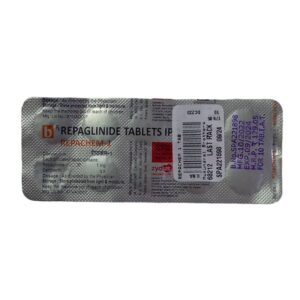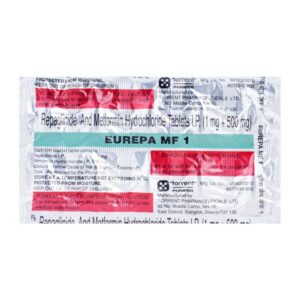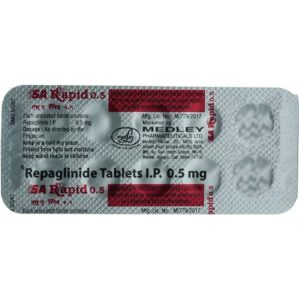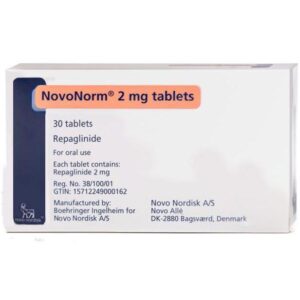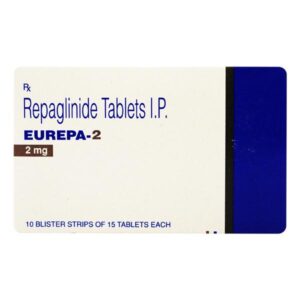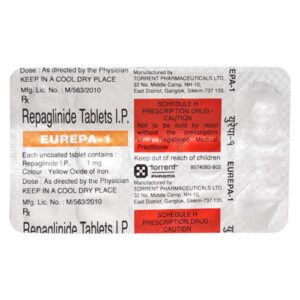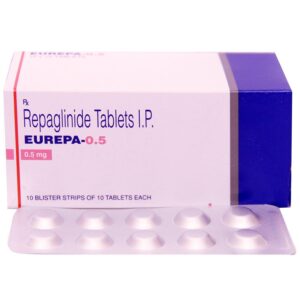REPAGLINIDE
REPAGLINIDE: Drug: Repaglinide
Use: Repaglinide is an oral medication used to control high blood sugar levels in individuals with type 2 diabetes. It is typically prescribed alongside a proper diet and exercise program.
Mechanism of Action: Repaglinide belongs to a class of drugs called meglitinides. It works by stimulating the release of insulin from the pancreas, which helps lower blood sugar levels. Repaglinide acts quickly and has a short duration of action, making it effective for controlling post-meal spikes in blood sugar.
Dose: The recommended starting dose of repaglinide is usually 0.5 to 1 milligram taken orally with each meal. The dosage may be adjusted based on blood sugar levels and individual response, but the maximum recommended daily dose is typically 16 milligrams.
Side Effects: Common side effects of repaglinide may include hypoglycemia (low blood sugar), weight gain, headache, dizziness, and joint or muscle pain. Hypoglycemia can cause symptoms such as sweating, shakiness, weakness, confusion, and rapid heartbeat. It is important to monitor blood sugar levels regularly and understand the signs of low blood sugar while taking this medication.
Less common but potentially serious side effects may include allergic reactions, liver problems, and a rare condition called lactic acidosis. Patients should promptly report any unusual symptoms or side effects to their healthcare provider.
It is important to note that repaglinide should not be used in individuals with type 1 diabetes or diabetic ketoacidosis (a severe complication of diabetes). It may interact with other medications, so it is essential to inform the healthcare provider about all current medications and medical conditions before starting repaglinide.

